First, Happy Birthday to what would have been Dwayne McDuffie’s 56th Birthday today. Dwayne McDuffie Week still going strong!
After re-reading my Damage Control, it’s clear McDuffie had a incredible penchant for parody that not only managed to entertain but more importantly provide meaningful commentary. While there are many who loved reading the early adventures of Luke Cage in the 70’s and minority representation, McDuffie made it no secret he had a less than favorable attitude towards the Hero for Hire.
As McDuffie described, “I never connected with Cage, the bastard child of a 10,000 blaxpoitation movies, a super-strong ‘angry black man’ who wore chains by choice, didn’t seem particularly bright, and spoke in a bizarre version of street slang that didn’t remotely resemble the speech of any black people I knew. Spider-Man made sense to me, Cage? What can I say? I just couldn’t relate.”
During his time at Milestone, McDuffie channeled those frustrations with the character Buck Wild, Mercenary Man, Hero for Rent. A thinly veiled pastiche and jab at Luke Cage, Buck Wilde debuted in the Icon #13 story “It’s Always Christmas!” where in true superhero team-up fashion after fighting the heroes Icon and Rocket due to an initial misunderstanding he eventually becomes a loyal ally. With “belief-defyin’ strength” and “tungsten-hard skin” as a result of an experiment in prison in 1972, Buck’s brain is now frozen in that same year. This story element allows McDuffie to play with that over-the-top blaxpoitation patois that defined many black comic characters in a way that makes sense to the story while also being a brilliant metaphor of the comics industry’s need to move beyond these obsolete depictions of the past.
Buck proved so popular among readers that McDuffie brought him back to take over Icon’s mantle. This career change was short lived after Buck was eventually killed by Icon’s alien nemesis Oblivion.
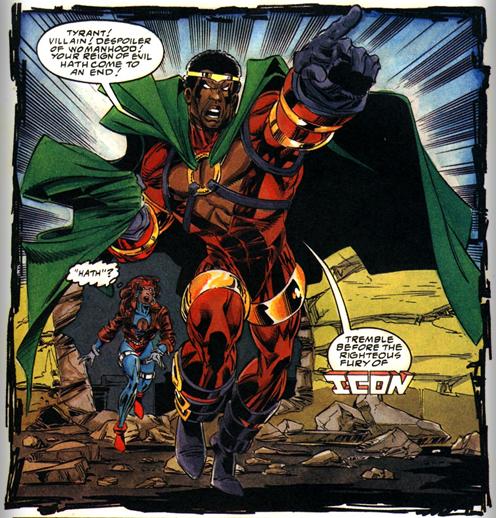
But hands down the highlight of the story is the recounting of Buck’s past identities throughout his superhero career that lampoons and gives readers a history lesson in the depiction of African-American superheroes in comics. Buck’s previous personas and the respective parodies include:
Buck Goliath (Bill Foster/Black Goliath)
Jim Crow (Sam Wilson/Falcon)
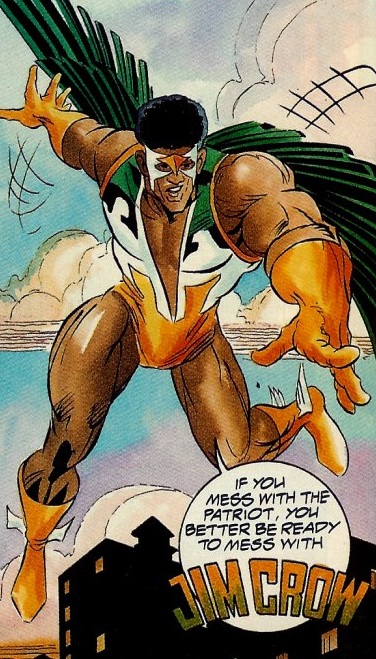
Buck Lightning (Jefferson Pierce/Black Lightning)
and finally while briefly resurrected during his funeral a short stint as Buck Voodoo (Jericho Drumm/Brother Voodoo)
In an interview with Evan Narcisse for the Atlantic, McDuffie talked specifically about these Buck Wild issues.
You’ve talked about how the character of Buck Wild came about as a commentary on the complicated love/hate relationship you had with Luke Cage. Do you still feel the need to address that relationship today? Did doing those issues with Buck help work that stuff out?
I’d worked those issues out even before I started Milestone. I just wanted to share those ideas with the comic book readership in an entertaining matter. Interestingly, those stories are about to be reprinted this summer as Icon: Mothership Connection. The excesses of Blaxploitation comics characters like Cage is the past, though. I’m much more interested in dealing with the stuff that’s going on now: more green characters with their own monthlies than black characters, a criminal lack of people of color in writing and editorial positions on mainstream books, et cetera… The last time I tried to write about that stuff in a mainstream book, my story was bounced (by the same people who asked me to write about it, mind you), and my editors wanted to replace it with clichés from twenty years ago, clichés that not coincidentally shielded mainstream readers and comicbook creators from any responsibility for the current state of affairs. I passed on that. I’ll write about those issues again when I have more control over the content.
As much as we like to believe the comics industry have evolved past these outmoded ideas, the current anti-diversity sentiments of various vocal groups proves otherwise. Hard though it may be to believe, McDuffie was considered “racist” for his particular beliefs regarding minority representation and diversity. I think the end of Icon’s eulogy below perfectly captures the identity crisis faced by minorities in media.


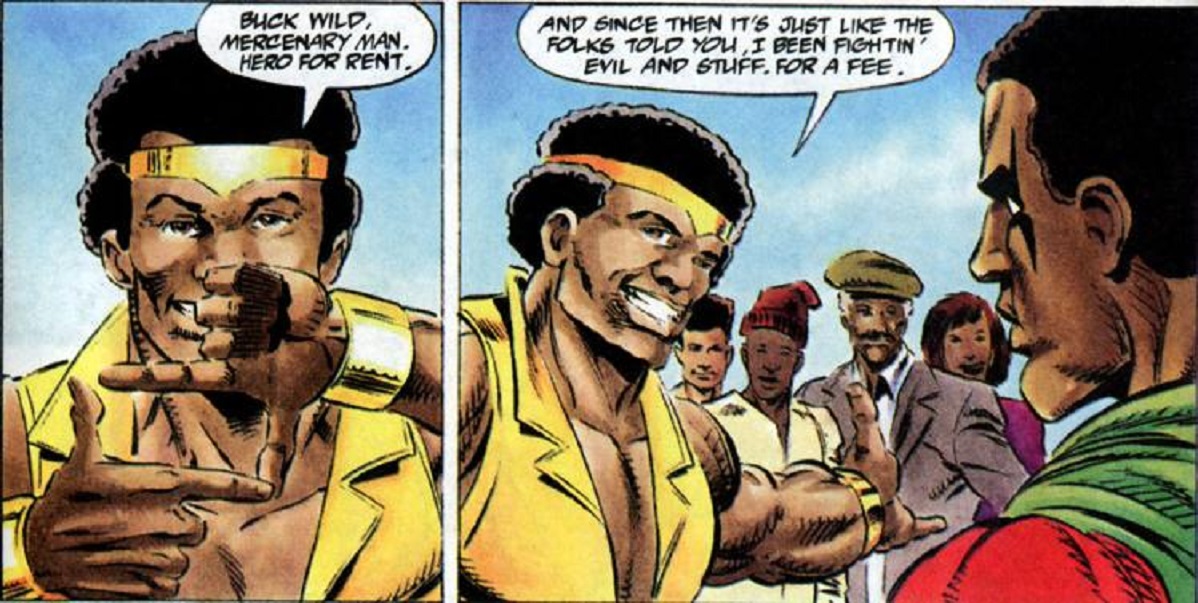

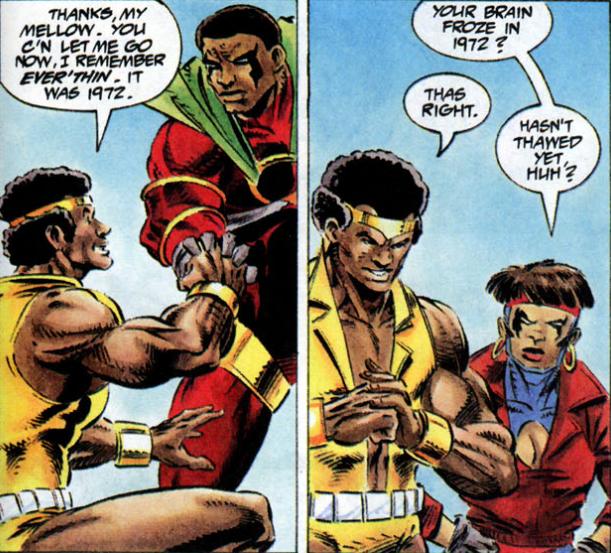
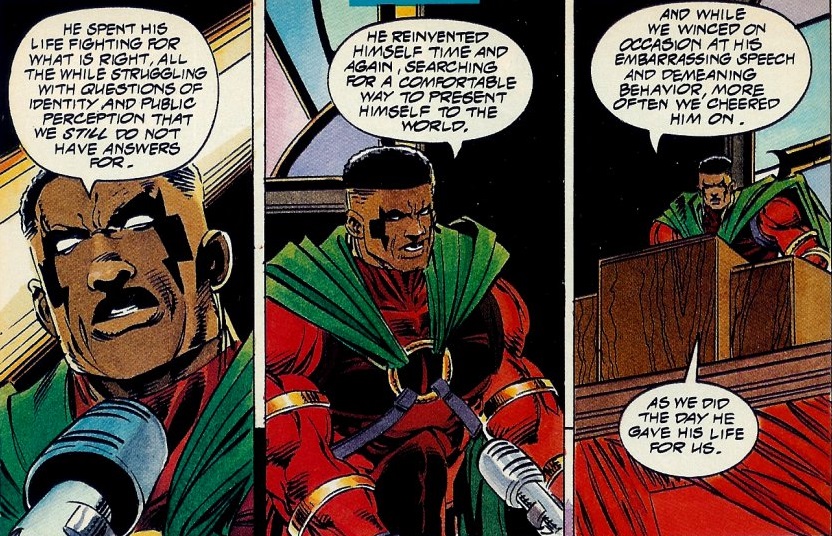
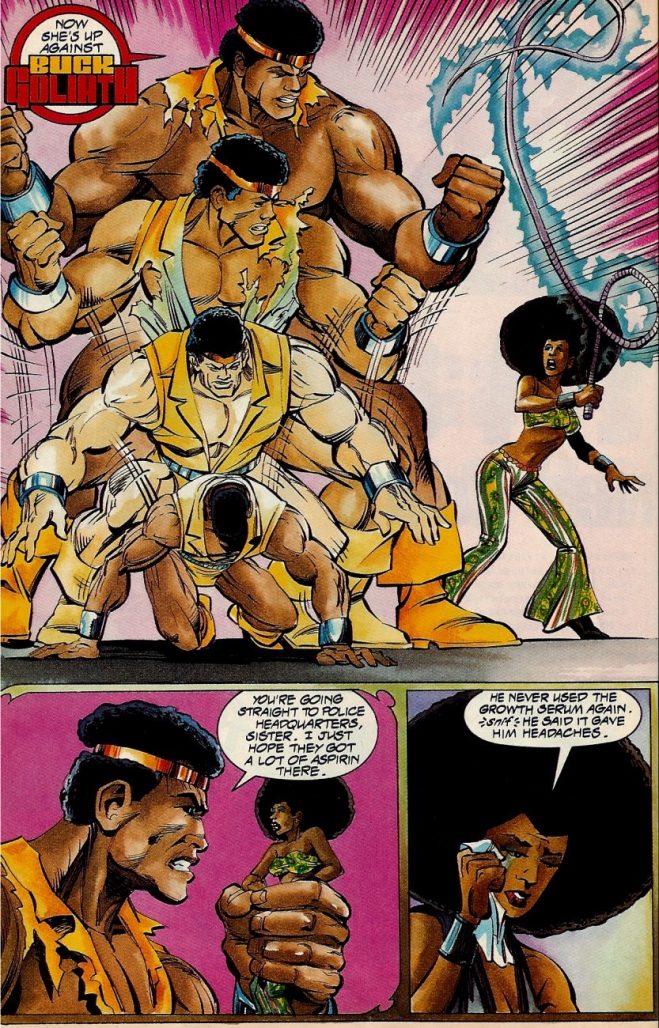
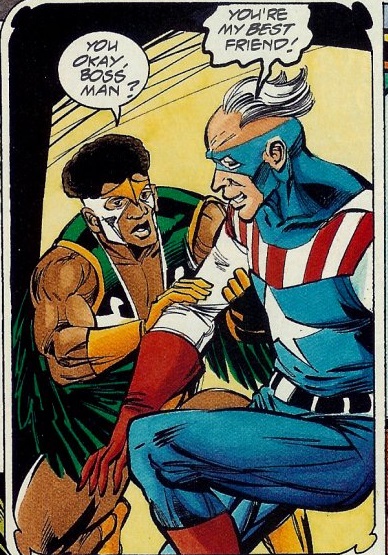
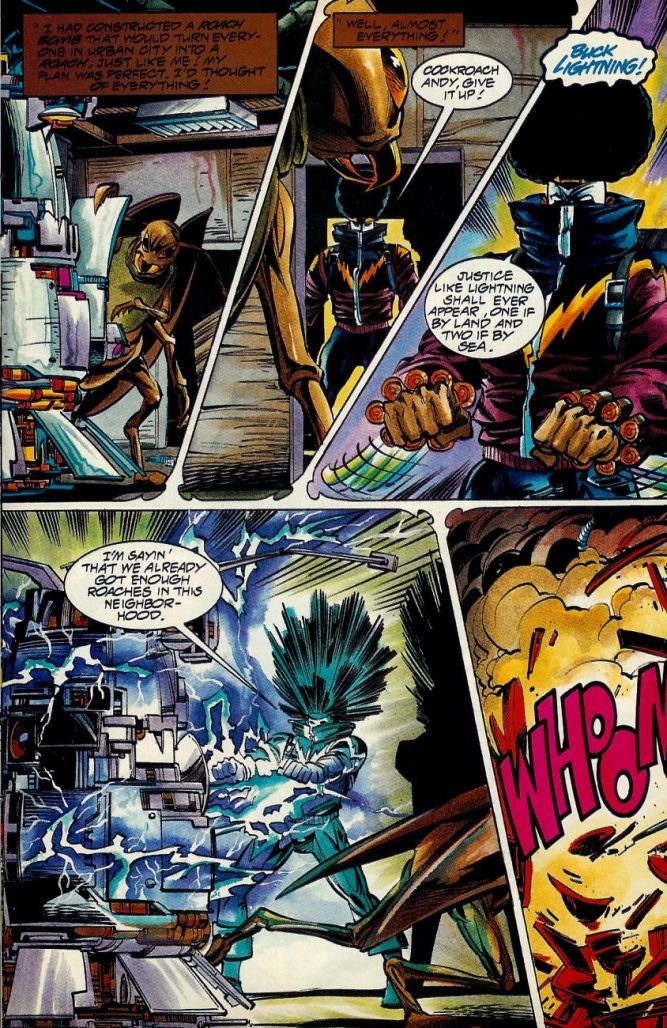
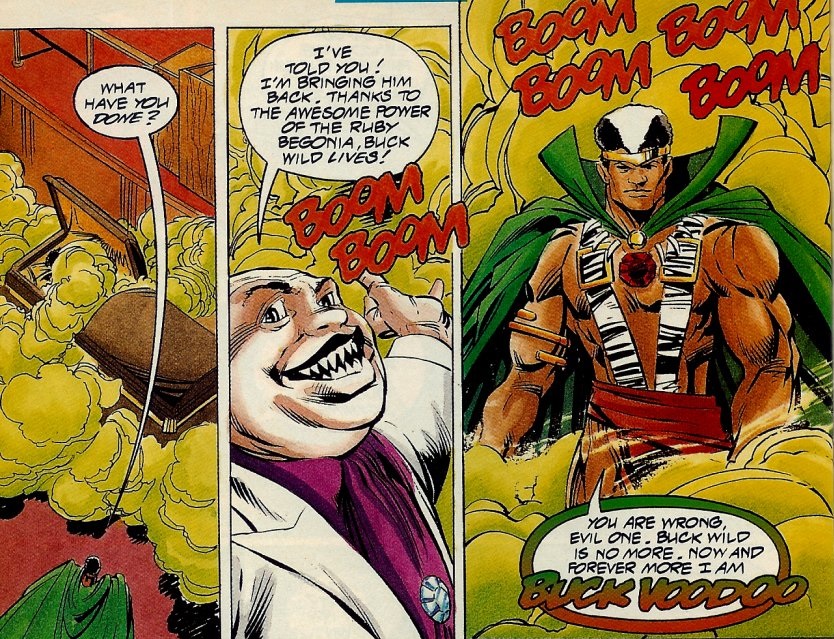
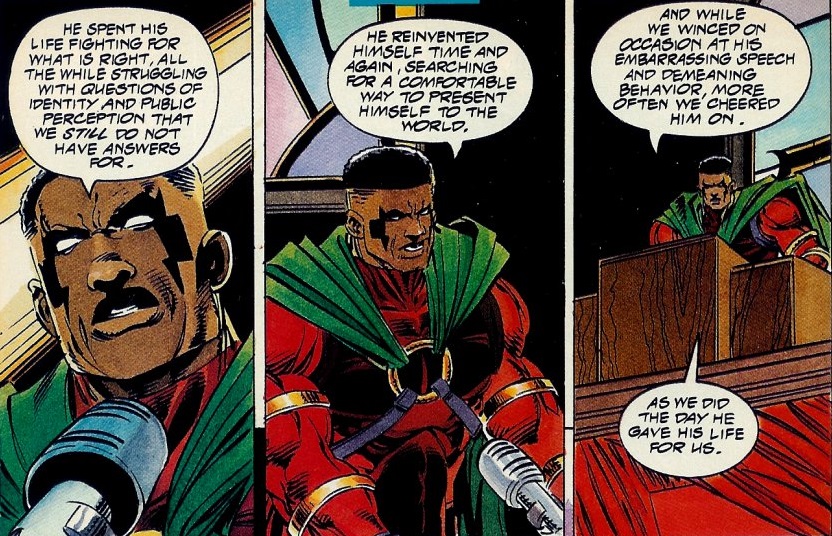





I howled with laughter at Buck’s enemy Lysistrata Jones and her deadly “P-Whip”. A brilliant parody of the questionably dressed Marvel villain Nightshade.
Cool.
Comments are closed.